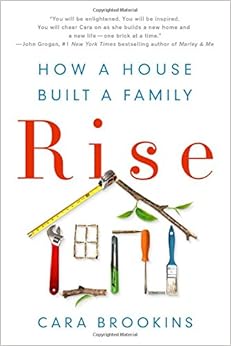 Book Information: Keplinger, K. (2010). The Duff. New York, NY. Little Brown.
Book Information: Keplinger, K. (2010). The Duff. New York, NY. Little Brown.ISBN: 978-0316084246
Summary: Bianca Piper is a regular girl with two awesome best friends. Bianca is not much of the social/party type, but tags along and hangs out in the sidelines while her friends tear it up on the dance floor. One night she's approached by the one guy from school who she deems to be the biggest playboy man-whore on Earth (she's not wrong): Wesley Rush. He tries to hit on her two friends by insulting Bianca and referring to her as their Duff, or Designated Ugly Fat Friend. Bianca blows him off and tries to move on. However, trouble at home leaves Bianca finding herself turning to the one person she usually never wants to even be in the same room with to deal with her feelings. Bianca finds out that there may even be more to that jerk than meets the eye.
Characteristics of YA:
- Main Characters are within an adolescent age range (approximately 14-21).
In The Duff Bianca and her friends are high school seniors. - The protagonist has a sort of coming-of-age experience
In the story, Bianca learns that it's not the best idea to keep everything bottled up and escaping from her problems by having lots of meaningless sex (mostly fade-to-black stuff but there's still a ton of sex in this book for a YA). She also has to adjust to and help her dad through an inevitable divorce. - Setting, genre, and style can vary
I've read a lot of YA. YA encompasses every genre under the sun that adults read, only it features a different target audience, so the protagonist is typically within the adolescent age range and deal with typical teenage problems, even in a high fantasy setting.
- The story tackles certain issue(s) that many adolescents experience (i.e. love, sex, parental divorce, LGBTQ, identity, friendship drama, moving, suicide etc.)
In The Duff, Bianca's mother surprises everyone by mailing signed divorce papers. The marriage wasn't exactly a happy one but it came out of the blue for Bianca and her father (the reader can kinda see it coming). This led to Bianca's father turning to alcohol to cope and instead of reaching out to her friends for help (these friends have also had experience dealing with divorce) she uses her worst enemy as a way to escape. Bianca also fights with her own self-image (due to Wesley being an asshole and calling her Duffy all the time - making her aware that she doesn't exactly fit the norm for what's hot). - Can be fiction and nonfiction
This goes along with one of the previous points that setting, genre, and style can vary in YA. The Duff is realistic fiction. What's also interesting about this book is that the author of the book is really young and actually wrote The Duff at age 17, when she was also likely a high school senior. As an aspiring YA writer myself, I'm very jealous and if I had known that before reading it, it would've made the book appeal more to me. I think the author being at an age that the target audience can relate to would definitely appeal to another teen.
As a personal note, I didn't think I'd like this book, but I did. The writing itself is really quirky and funny and sticks true-to-character point of view: Bianca doesn't mess around, so neither does the writing. The character development and dialogue are winners here. Don't watch the movie. After finishing the book, I went ahead and watched it and it tells a completely different story (and it's awful). The book is really about how Bianca handles her parents divorce and her other friendship/social problems - the movie focuses on what Bianca can do to "be pretty" and "not be the Duff anymore" and turns her parents divorce into a joke. The book = depth, character development, meaning. The movie = the screenwriters had to basically change the whole thing to get it rated PG-13.
Read - A- Likes:
The Earth, my butt, and other big round things by Carolyn Macker
Love and other Theories by Alexis Bass
Beauty Queens by Libba Bray
What My Girlfriend Doesn't Know by Sonya Sones
The Queen of Everything by Deb Caletti

